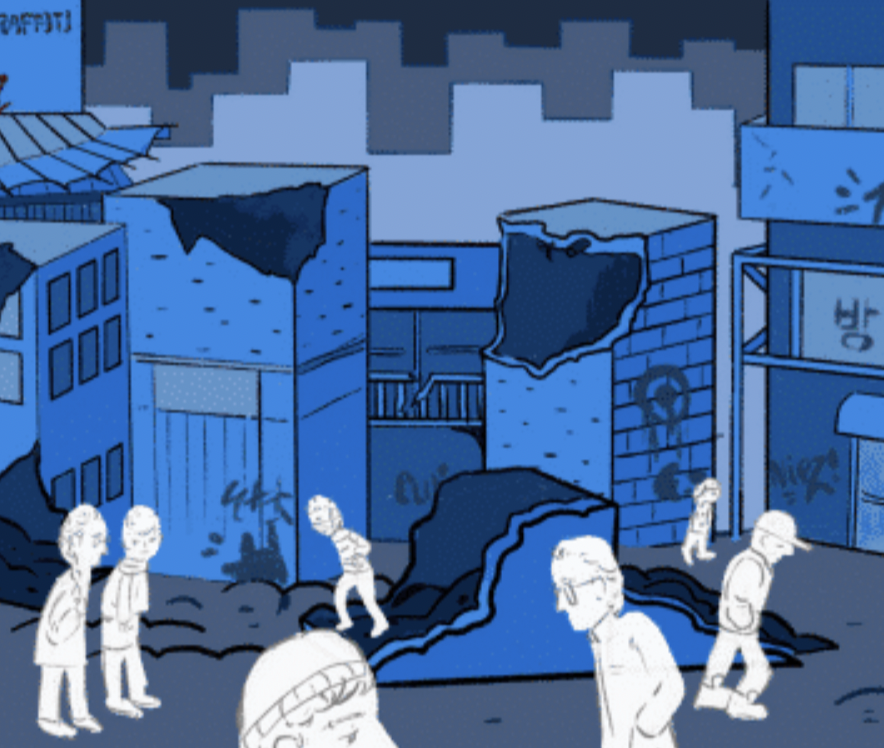Y oon Suk-yeol, a member of the People Power Party, won the South Korean Presidential election on March 9 to become the nation’s 13th president.
In recent years, South Koreans have been outraged by the political exploitations committed by previous presidential administrations. Though some remain suspicious about Yoon’s lack of political experience, Yoon was able to defeat Democratic Party nominee Lee Jae-myung because of his status as the nation’s former prosecutor general and his popular domestic policies. The future of South Korean politics looks bright; Yoon’s administration promises to address issues such as corruption, the nation’s economy, and international relationships.
Ever since its democratization in 1987, South Korea has fallen victim to institutions that encourage corruption and duplicity. This corruption is deeply ingrained within the politics of South Korea, which can be observed through the multitude of bribery cases, sexual harassment scandals involving high government officials, and the impeachments and incarcerations of former presidents.
Yoon’s campaign promised to investigate the wrong-doings of the current administration of President Moon Jae-in; many in South Korea see Yoon and his administration as a symbol of justice in a nation littered with corruption. His stance on corruption is not just in speech — he has the record to back it up. As the prosecutor-general, he was known for being tough on corrupt politics. Yoon intends to renew the prosecution of South Korea and conduct scrutinous investigations to properly and impartially judge those who have threatened the nation’s democracy.
Other than his proposed action to battle corruption, Many South Koreans are supporters of his domestic policy. Unlike the United States, where economic opportunities are spread across major cities, Seoul, the capital of South Korea, holds the vast majority of the nation’s commercial, financial, and administrative action.
The unreasonably high concentration of job opportunities in Seoul has created a housing bubble. Additionally, the Jeonse rent system — a South Korean rental system in which tenants pay a lump-sum deposit that they receive back in full following the completion of their rental contract — has led to the inflation of property prices. The current Moon administration aims to increase property tax and regulate Jeonse loans to reduce Seoul’s inflated demand for housing and make property much more affordable. Despite these efforts, Moon’s administration has also caused significant harm to regular homeowners and members of the working class. But, Yoon has promised to reduce government interference in the housing market, allowing the private sector to make profit there once more. Yoon’s administration aims to supply 2.5 million housing units across the nation — 1.3 million of which would be located in Seoul — to provide property for homebuyers in their twenties and thirties. Yoon’s ambitious project promises to fix the housing crisis that remains an issue at the forefront of voters’ minds.
Moreover, Yoon has promised to support the Korean economy through his focus on expanding the information and communications technology (ICT) sector and the creation of new, sustainable jobs. The majority of South Korea’s exports comes from its ICT sector, which has proven to be extremely profitable, as companies such as Samsung and LG have become essential parts of South Korea’s economy.
Yoon plans to relax government involvement in the ICT sector to foster expansion of production and development in technological companies. His administration will facilitate corporate investment and plans to ease labor regulations, which will allow companies to receive aid from the government to develop startups in medical fields, cultural content, and social services.
Despite the immense support that Yoon plans to show towards companies, his main agenda is to compensate those who have sustained economic losses due to the Covid-19 pandemic. Unfortunately, Yoon was unable to address gender inequality in South Korea. The country has the largest gender wage gap amongst countries in the Organization for Economic Co-operation and Development (OECD), been prone to frequent gender discrimination within the workplace, and fallen victim to a multitude of sexual harrassment cases involving high-level government officials.
The prominence of South Korea’s own #MeToo movement, 0ther organzations, and increasing occurrences of femicide pushed South Korea’s Ministry of Gender Equality and Family, a governmental ministry, to reduce gender discrimination and violence against vulnerable groups by implementing gender-related policies.
Though the previous administrations supported the continuation of the ministry, Yoon’s administration has called for its abolishment. Surprisingly enough, nearly half of South Korean adults, typically younger men, support the abolition of the ministry, claiming that it has been ineffective in promoting equality and has supported “reverse-discrimination” toward men in the workplace.
Yoon’s administration plans to reform the “unfair policies that favor women” by “establishing a new body that can shed light on the “value of ‘family’ and youth who strive for fair competition.” Yoon’s stance on the Ministry of Gender Equality and Family has stirred controversy amongst South Korean voters and many worry that years of progress towards gender equality will be undone under his leadership. However, it appears that Yoon and his administration will properly address issues of gender inequality, corruption, and economic stagnation through their government model.




